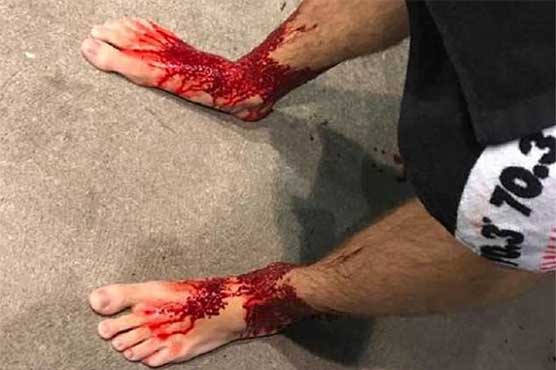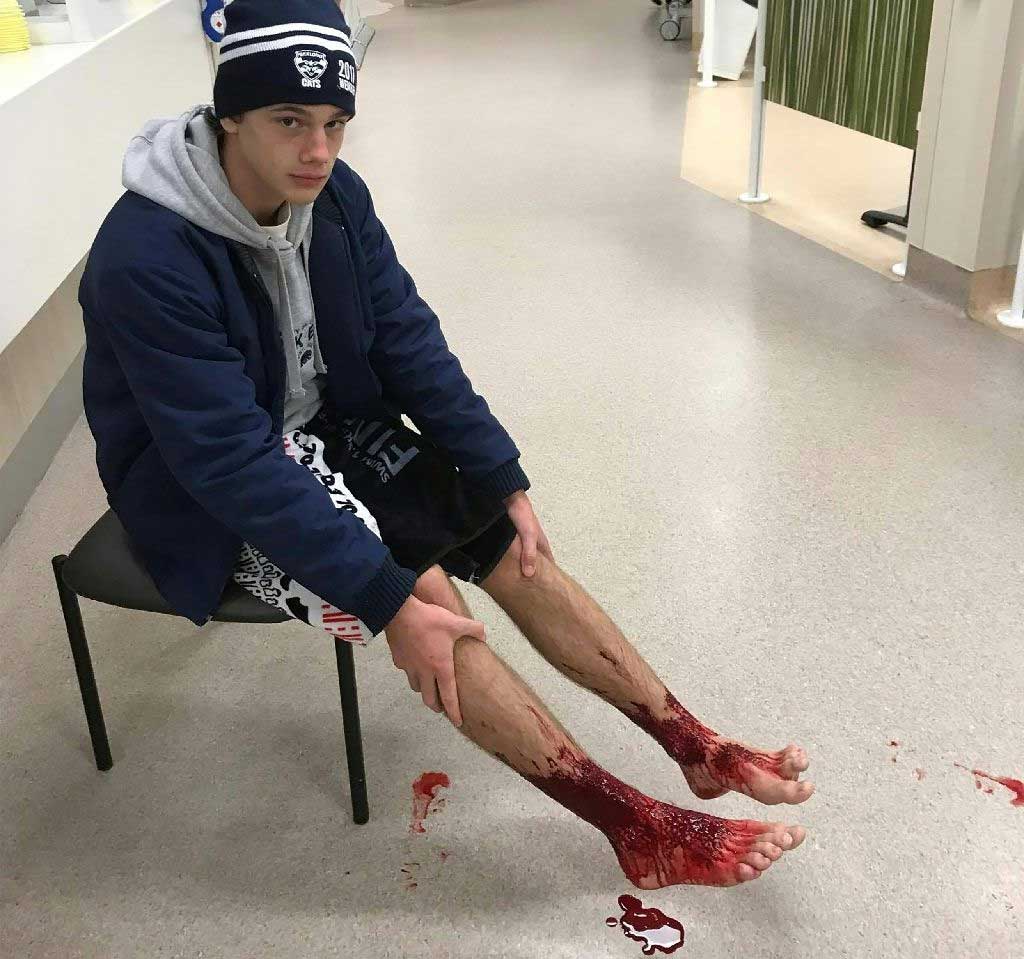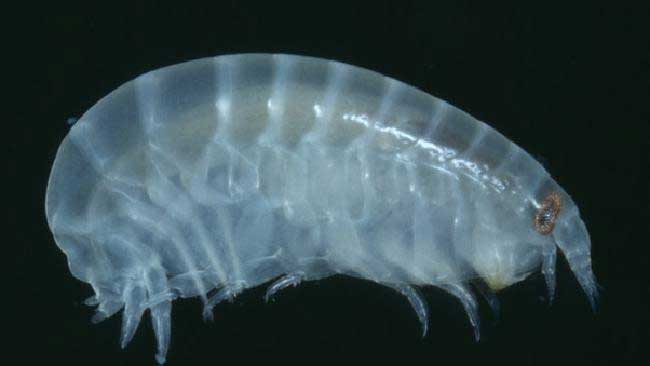Mysterious 'meat-loving' sea creatures eat Australian teenager's legs

Doctors could not explain what had caused the injury.
Sydney (AFP) - An Australian teenager emerged from a night-time dip in the ocean with blood streaming from his feet and ankles in a gruesome mystery that doctors have struggled to explain.
Sam Kanizay waded waist-deep into the water at Brighton Beach in suburban Melbourne on Saturday evening, standing still for about 30 minutes. When he came out of the sea he was bleeding profusely from the calves down.
"The cold water numbed my legs. I felt what I thought was pins and needles but maybe it wasn’t just pins and needles," the 16-year-old told 3AW radio Monday.
Washing the blood off his legs in the shower did little to stem the flow from what his family believed was an attack by sea lice.
"It sort of looked like hundreds of little pin holes or pin-sized bites distributed all over my ankle and the top of my foot," he said.
Kanizay, who was rushed to hospital, said doctors could not explain what had caused the injury.
"We had a few people guessing that it was sea lice, but no one really had any ideas."

His father went as far as scooping some of the tiny critters from the ocean and posting a film online of them devouring small chunks of meat.
Some reports cited experts pointing instead to stingrays or jellyfish as the suspected culprits.
VIDEO POSTED BY KANIZAY’S FATHER:
But Jeff Weir, from the Dolphin Research Institute, said the injury was likely caused by opportunistic amphipods, a tiny crustacean that latches onto decaying plant or animal matter to help break it down.

Parawaldeckia crustacean, identified as the creature which attacked Sam Kanizay.
"They are not there to eat us, but sometimes they might take a little bit, like mosquitoes and leeches and other things out there in the environment," he told AFP.
"He (Kanizay) must have been very, very cold and he wouldn’t have felt it," added Weir, who experienced a similar injury on his forehead after a night dive 40 years ago.
The veteran marine researcher said Kanizay’s injury was much like a graze and he should not fear returning to the water.
"I don’t think there has been anything that has changed, there just aren’t that many people that stand really still for that long."

